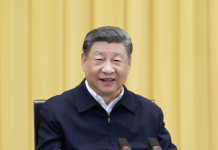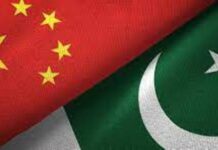URUMQI: Amid a crackdown by the US and other Western countries on Chinese enterprises based in northwestern Xinjiang, some of the firms have noted that their exports have not been affected much, and in some cases their exports have even risen.
And, other companies based there said that they are actively exploring domestic sales channels, as uncertainties such as the Western crackdown and the pandemic make the Chinese market a priority to avert risks.
The fifth China Brand Day kicked off on Monday in Shanghai and online, with enterprises from all over China participating in the event, including companies from Northwest China’s Xinjiang Uygur Autonomous Region.
Liu Haifeng, CEO of China Colored-Cotton Group, told the Global Times on Monday that at present, the company now focuses on selling in the domestic market, as its export volume has been relatively small.
“The influence of the boycotts of Xinjiang cotton by some Western countries is limited, and our foreign trade has not been greatly affected. South Korea and Japan are two of our major export destinations, and they will remain as our priorities.
“Exports to Europe have dropped slightly,” said Liu, adding that due to the support of Chinese consumers at home, the number of orders has increased by more than 20 percent compared with last year. The company said that it has the largest colored-cotton planting base in China. The output of natural-colored cotton in Xinjiang accounts for 95 percent of the production in China, and about 50 percent in the world.
As some export-oriented Xinjiang enterprises get support from home consumers, they have started to engage in the transition from exports to domestic market promotion. Some Xinjiang enterprises told the Global Times, on condition of anonymity, that they are actively seeking domestic sales channels.
“China’s steady economic growth has created a stable market and rising demand. On the contrary, repeated virus outbreaks in many foreign countries have increased uncertainties in foreign trade, and the restriction imposed by some Western countries on Xinjiang cotton has brought uncertainties to the sector. Enterprises moved to promote domestic sales in order to avoid risks,” an analyst and investor surnamed Cheng told the Global Times on Monday.
An agricultural enterprise said that it is cooperating with Alibaba’s Tmall, one of the largest e-commerce platforms in China, to expand domestic market sales.
– The Daily Mail-Global Times News exchange item






